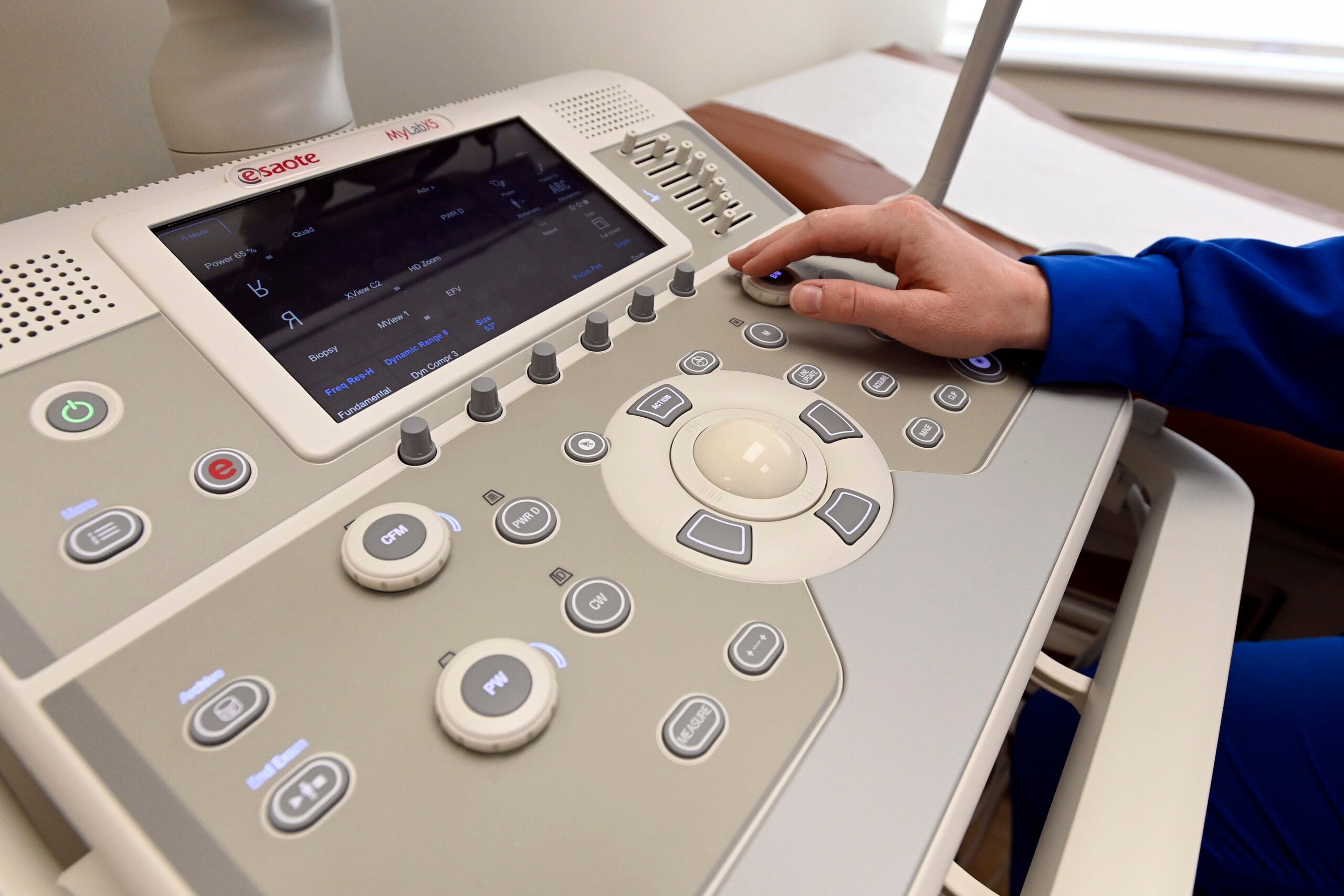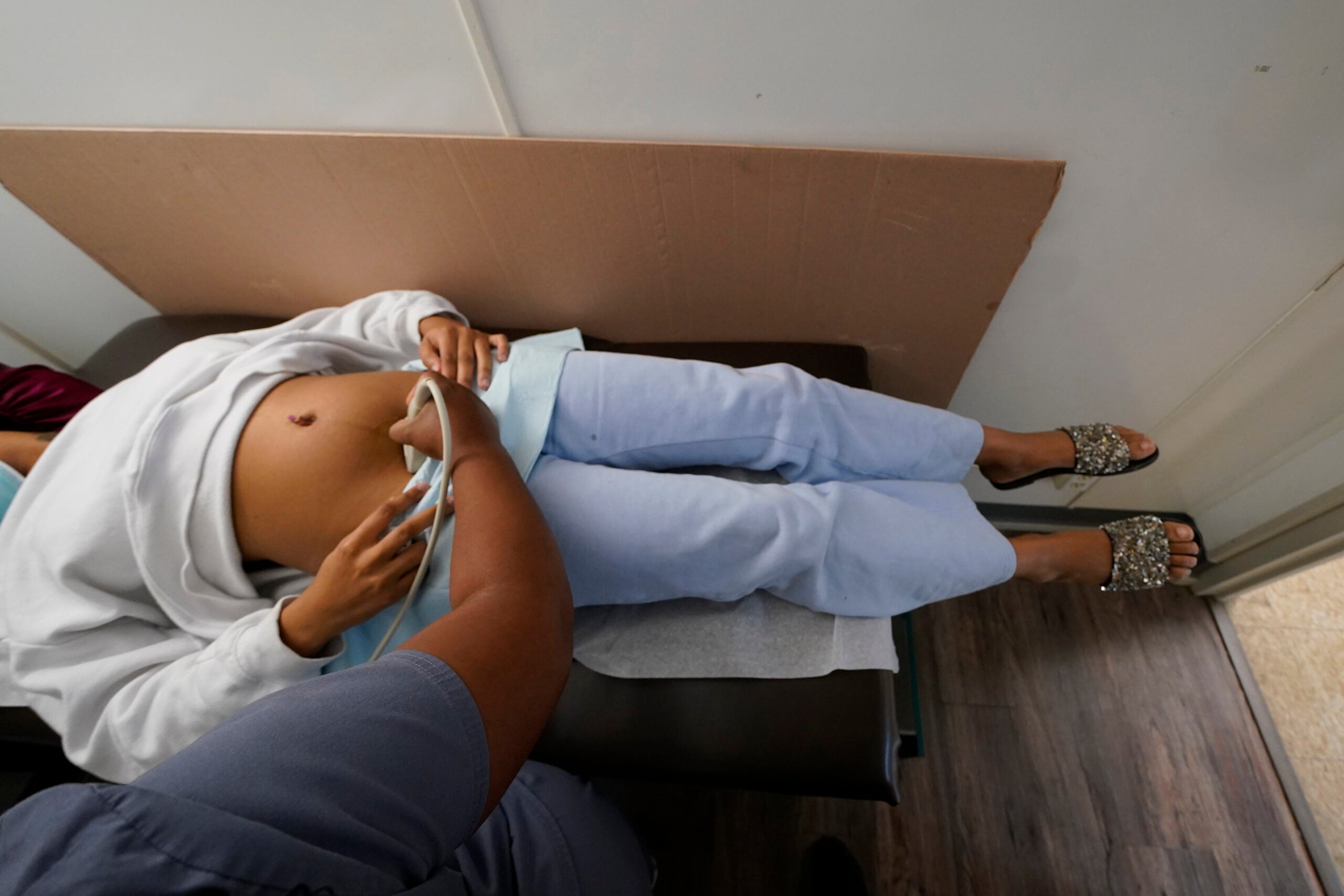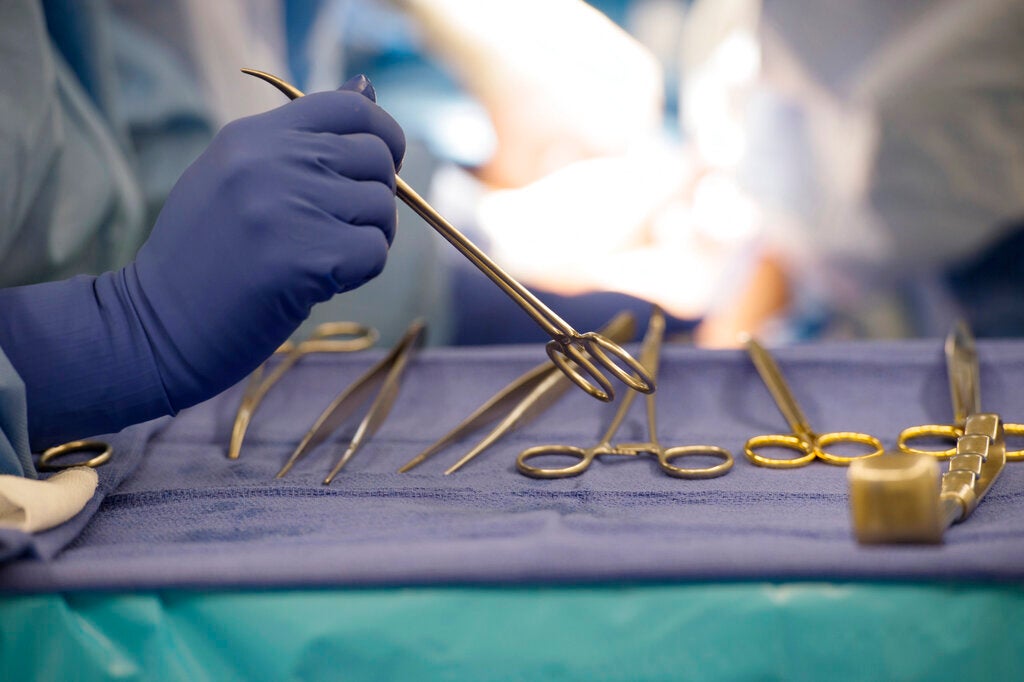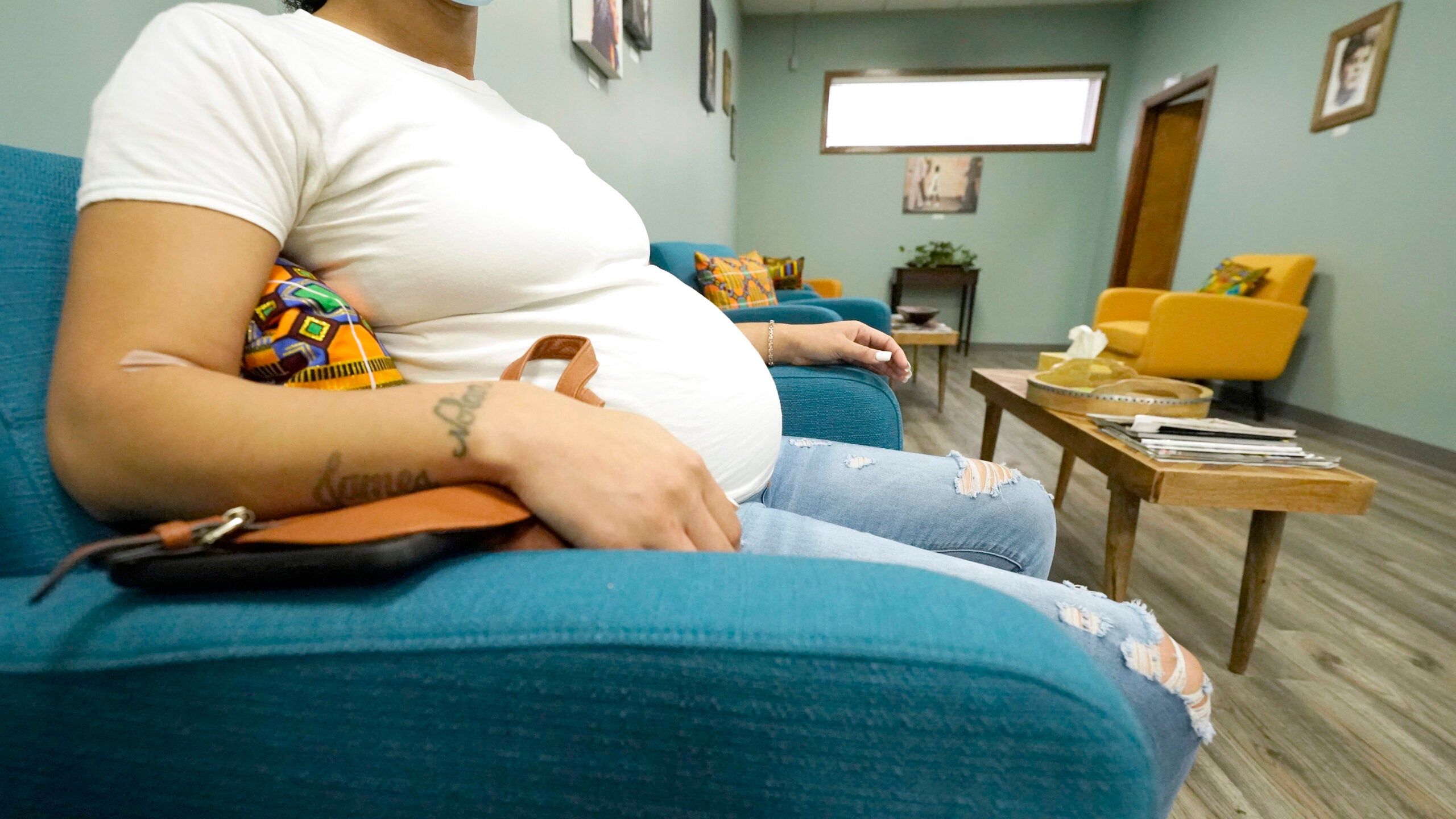Tessa Meurer hoped to stay in Wisconsin after graduating from the University of Wisconsin-Madison’s medical school.
But after two years in the program — and the reinstatement of the state’s pre-Civil War abortion ban — they’re not so sure.
“I think there’s a high need here in Wisconsin for good reproductive health care providers,” Meurer said. “But the reality is I’m probably gonna have to look out-of-state or on the coasts for a residency program that can give me the training I want and need and honestly deserve.”
Stay informed on the latest news
Sign up for WPR’s email newsletter.
Meurer, a former co-leader of Medical Students for Choice, said they’re not the only aspiring doctor thinking about options outside of Wisconsin — especially for those interested in pursuing careers in obstetrics, gynecology and family medicine.
“I think long-term, this is going to have a big impact on the number of OB-GYNS, family docs and other providers that want to provide this care whether they choose to practice here in the state of Wisconsin or elsewhere, where things are safer,” they said.
To get licensed, OB-GYNs are required to learn how to perform surgical and medication abortions. The same skills also apply to caring for patients going through a miscarriage.
Students in Wisconsin now have to travel to neighboring states, where abortion is legal, to get that training.
Democratic U.S. Sen. Tammy Baldwin hopes to make that process easier. She introduced federal legislation Thursday that would provide $25 million in funding each year — over the next five years — to support students crossing state lines to get abortion training.
Baldwin’s legislation comes as Planned Parenthood of Illinois reported the number of patients needing to travel from Wisconsin over the last year to receive care has increased 12-fold.
Gracie Skogman, the legislative director of Wisconsin Right to Life, said many medical providers in the state and nation oppose abortion.
“To be a medical provider, these individuals want to protect and save life, so it seems counterintuitive to those goals to be providing training on the taking of a life through abortion,” Skogman said.
Residency programs already working to get students training
The U.S. Supreme Court’s decision last year to overturn Roe v. Wade reinstated a centuries-old statute in Wisconsin criminalizing abortion except to save the life of the mother. That forced medical program directors in Wisconsin to make sure residents didn’t fall behind on their training.
The Medical College of Wisconsin and RUSH University Medical Center in Chicago finalized a partnership in January to coordinate plans for sending medical residents across the border to get training. Since February, at least three out-of-state residents have received that training in Illinois. Three more are scheduled to begin in the new academic year, which starts July 1.
“I think any obstetrician, whether or not they provide abortion, knows that more people are going to be dying because we don’t have access to abortion in many states,” said Dr. Sloane York, program director at RUSH University Medical Center in Chicago.
York said Medical College of Wisconsin residents are fully involved in all the center’s family planning clinics, work in outpatient settings and focus on care for patients undergoing surgical procedures. They also care for patients who need miscarriage management, abortion and contraceptive care.
Dr. Kate Dielentheis is an assistant professor in the Department of Obstetrics and Gynecology, and the associate OB-GYN residency program director at the Medical College of Wisconsin. Shortly after Roe was struck down, Dielentheis said the Medical College of Wisconsin paired up with Rush to work through the logistics of training out-of-state students.
“It doesn’t seem fair that someone would not be able to provide and receive evidence-based medical care in the state that they reside in,” Dielentheis said. “My overwhelming feeling from our trainees is that of frustration and anger and sadness.”
In a statement to Wisconsin Public Radio, UW Health confirmed it had created a partnership with the University of Chicago to “provide UW Health OB-GYN residents access to a family planning and abortion services educational rotation in that state.”
“This partnership enables the residency program to maintain compliance with the requirements for an accredited program per the national accrediting body, the Accreditation Council for Graduate Medical Education,” UW Health said in the statement.
Aurora Sinai Medical Center also plans to send third-year residents to Minnesota beginning this July for four weeks of training.
“We are committed to ensuring that our residents receive the obstetrics and gynecology experience needed to provide patients with safe, quality care, which includes all training required by the Accreditation Council for Graduate Medical Education,” a spokesperson wrote in an email.
Dielentheis said she hopes to find a more sustainable source of funding to support medical residents’ abortion training.
Baldwin’s proposed funds could be one way to remedy that concern.
“In order for women to exercise their right and freedom to control their bodies, doctors need the proper reproductive health care training,” Baldwin said in a press release. “The Reproductive Health Care Training Act will bolster the pipeline of these needed doctors by easing the burden that out-of-state training presents and supporting the medical programs that are seeing an influx of individuals that need training.”
Still, program directors worry the abortion ban could hurt recruitment and retention efforts, which could worsen the quality of the state’s health care.
Dielentheis of Medical College of Wisconsin said the abortion ban has produced a ripple effect.
“It affects residents, it affects faculty. And in order for a community to have good health care, you have to have good people at all levels,” Dielentheis said.
Meurer, the second-year medical student, said Wisconsin’s abortion ban has only made them more determined to advocate and champion reproductive health and justice.
“I think just listening to folks, listening to their stories and remembering at the end of the day that we all want what’s best for our patients is what’s most important to me,” Meurer said.
Wisconsin Public Radio, © Copyright 2025, Board of Regents of the University of Wisconsin System and Wisconsin Educational Communications Board.





